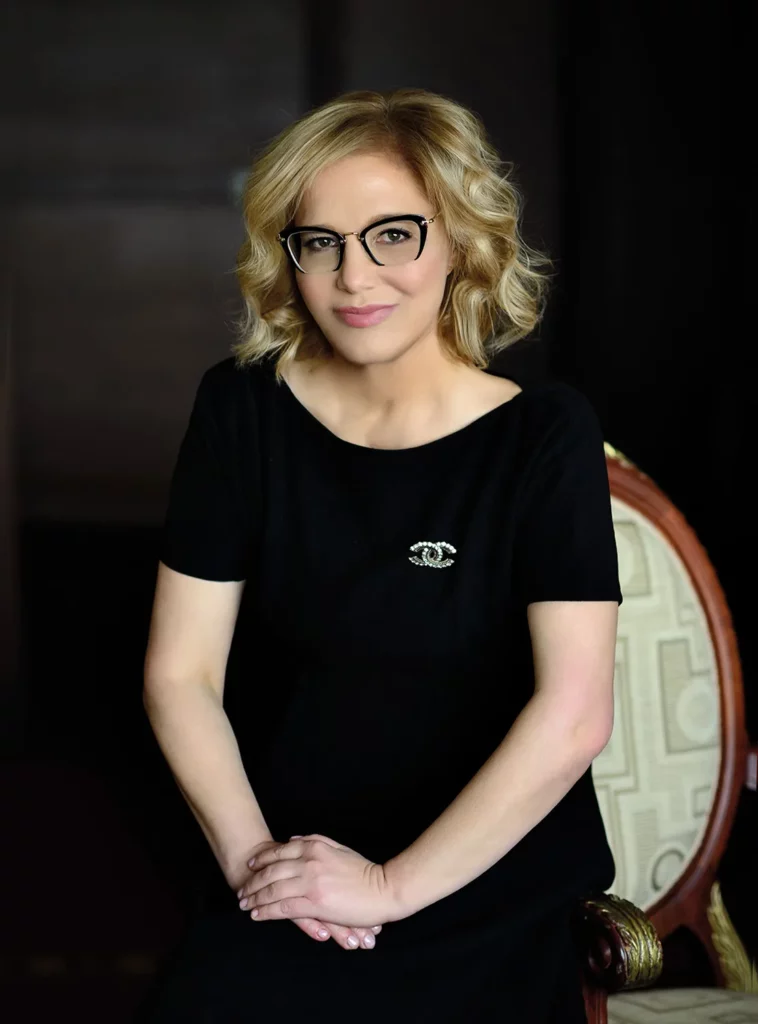In Bulgaria, the medical community is raising the alarm as young women, as young as 17, are starting to rely on plastic surgery and facial injections to correct what they don’t like in their looks. In addition to their young age, professionals 3Seas Europe talked to for this story are alarmed that the beauty correction market in Bulgaria largely resembles the Wild West, with risks looming from trusting non-qualified staff with such an important task.
Trusting injectable facial treatments and plastic surgery with helping to improve one’s look is hardly a Bulgarian invention. According to 2020 data from The International Society of Aesthetic Plastic Surgery, 1.15 million nonsurgical procedures were performed in Germany alone, making the country EU’s leader in this category, followed by Italy (830,000) and Spain (397,000).
Taking it too far
And while Bulgaria is not among the EU leaders in terms of the number of procedures, the country appears to have a worryingly high tolerance for such procedures, often performed in questionable facilities. A 2022 survey by the “24 chasa” daily revealed that as more and more Bulgarian men and women turn to various beautifying procedures, 74% of Bulgarians believe the trend has gone too far, especially among women. And yet, as our conversations with leading plastic surgeons in Bulgaria reveal, the number of clients only seems to be going up. What makes Bulgaria a special case when it comes to beauty enhancement?
In Bulgaria, there has always been a desire for external evaluation. We easily take on external models, especially if they are image-oriented
Alexandra Petrova, psychologist
“In Bulgaria, there has always been a desire for external evaluation. We easily take on external models, especially if they are image-oriented. It is in our culture to hide the bad behind our doors, to show off the new and the beautiful,” psychologist Alexandra Petrova says in a conversation with 3Seas Europe. “For some Bulgarians, aesthetic adjustments seem to be the launching pad for luxury, success, and the good life, in general. In Bulgaria, they say, “They welcome you by the clothes and bid you farewell by the mind.” The first part of that expression is very powerful. It doesn’t mean that we are not thinking, but it shows how strong the impact of limitations from the past still is today,” adds Petrova.
Dermatologist Prof. Miroslava Kadurina, who in her field of work often deals with victims of procedures gone wrong, points to the fact that in Bulgaria, women as young as 17 years old are looking to modify their bodies. While in many European countries, there’s an age limit, usually 21-22 years old, in Bulgaria, such limitations have not been put in place. “The battle against aging shouldn’t be seen as a battle against nature,” prof. Kadurina says. She is among the proponents of introducing an age limit for various procedures. Furthermore, as other doctors insist, even when the parents do allow their child to undergo treatment, it should be performed exclusively in authorized and supervised clinics, which is also not always the case in Bulgaria.
Chasing unrealistic beauty standards

“Young people in Bulgaria today do not have good models on which to build an identity. They only look at the glossy surface; this is what matters to them. The way they see it, it’s a beautiful Cinderella magic story,” thinks Alexandra Petrova, the psychologist. If one’s overly enlarged lips or other body parts are successfully positioned on social media and create interest, then very quickly the balance and boundaries are lost. It is then easy to ask for similar lips, and big becomes the new normal.”
Our interlocutors emphasize the fact that while surgery and other treatments are popular everywhere, in many countries, aesthetic corrections are more concentrated in certain groups of society, like show business. In Bulgaria, Alexandra Petrova notes that aesthetic corrections are part of the culture. “The more often you see a certain behavior and product, the easier it becomes the norm. Furthermore, the more people you see doing it, the easier it is to sell the idea. When you buy [something], when you do something to your body, you get closer to that dream status. So this trend is self-replicating and feeding the popularity of such procedures in Bulgaria,” Petrova says.
And this is where things become serious. Prof. Dr. Nigiyar Djafer of the Medical University of Sofia and former Deputy Speaker of the Bulgarian National Assembly sees the lack of awareness as one of the main reasons for the outsized popularity of such procedures in Bulgaria. “The trend of young people using silicone to improve their appearance is alarming and disturbing,” Prof. Djafer tells 3Seas Europe. “Why do they do it? Very simply – from lack of awareness of the risks, low health culture, and lack of access to reliable medical information. Young people simply have no idea about the negative consequences. And it’s not helping that where they’re looking for information – online – it’s very difficult to sift out disinformation from facts based on real medical evidence.”
A ballooning problem
The wide availability of affordable injections also contributes to their popularity. Provided one is not too much into preliminary research, adverse effects be damned, EUR 50-75 is enough to get you started on Botox in one of the facilities, which most probably won’t gain the stamp of approval of regular doctors. How so?
Again, beauticians in Bulgaria are simply taking advantage of the fact that the law does not prohibit people without medical training and qualifications from offering aesthetic procedures.
But what begins with a Botox fix might not end there. Plastic surgeons in Bulgaria also share stories of high school graduates receiving graduation gifts such as breast implants from… their parents. “The recent years of isolation from the pandemic have led young people to have an even stronger fixation on the body,” argues psychologist Alexandra Petrova. “The longer the isolation and immersion in the virtual world is, the more irretrievably one’s own relationship with the body is lost. The body then becomes subject to experimentation and repair, and the process can be a sucking addiction in which there is no satisfaction. At 17-18, identity is not established, so external additions are also protection,” psychologist Alexandra Petrova adds.
“More silicone than savvy”
In one of the early episodes of the Bulgarian edition of “The Bachelor,” the dreamy bachelor observed that some female contestants appeared to be “more silicone than savvy.” Meanwhile, the European facial injectable treatments market is only expected to grow, estimated to reach EUR 3.7 billion in value in 2029, up from 2.2 billion EUR in 2022. Among the growth drivers is the rising popularity of injectable facial procedures among men.
Across the southern border of Bulgaria, Greece is already among the top five EU markets facial injectable markets, while Istanbul, a one-hour flight from Bulgarian capital Sofia, is one of the plastic surgery capitals of the world.
With young people in Bulgaria glued to Instagram and TikTok, it will be more difficult to remember and believe what generations of Bulgarian women were told before them. Precisely that Bulgarian women are the most beautiful in the world.
What the experts are saying:
Dr. Maria Toncheva, Aesthetic Dermatologist
“Both men and women I work with tell me that they just want to feel good, and this is what brings them to me. Social media is also a motivation. My patients come from all age groups, the youngest ones being between 25-26 years old. The younger ones don’t come in for the sake of having something changed. But rather, they want to establish a proper routine and take quality care of their skin.
In my practice, I have examples where patients come after having had a filler put in somewhere else. They have lumps in their lips. People need to know and care about what is being put in their mouths. They need to make sure that the product is of good quality. I have patients who come in for help and don’t know what’s being put in their lips. And there are over 300 types of fillers on the market.
How do you gain the patient’s trust? The way you gain trust between friends: by being honest and telling the truth. You can’t promise improvement and then go on to make it worse. Sometimes, I am brutally honest instead of deceptive. And always use the best products, even if that means smaller profit.”
Docent Daniel Yankov, Vice President of the Association of Plastic, Reconstructive, and Aesthetic Surgery
“The natural human desire to look better is the main reason why aesthetic procedures are preferred in Bulgaria. They are followed by a definite increase in personal fulfillment. Other factors and circumstances also matter – fashion trends and social media. But whatever you decide to do, it should be done by competent, qualified professionals. That is the weak point in Bulgaria, as in other countries. There is a struggle with the so-called cowboys, a term for unqualified doctors and medical professionals with secondary education who only have a mercantile interest at heart.
Unfortunately, in our country, we need to work a lot on the regulatory framework, meaning who is allowed to perform aesthetic procedures and who is not. In Bulgaria, as of now, there is no such regulation, no control, no penalties for violators.”







